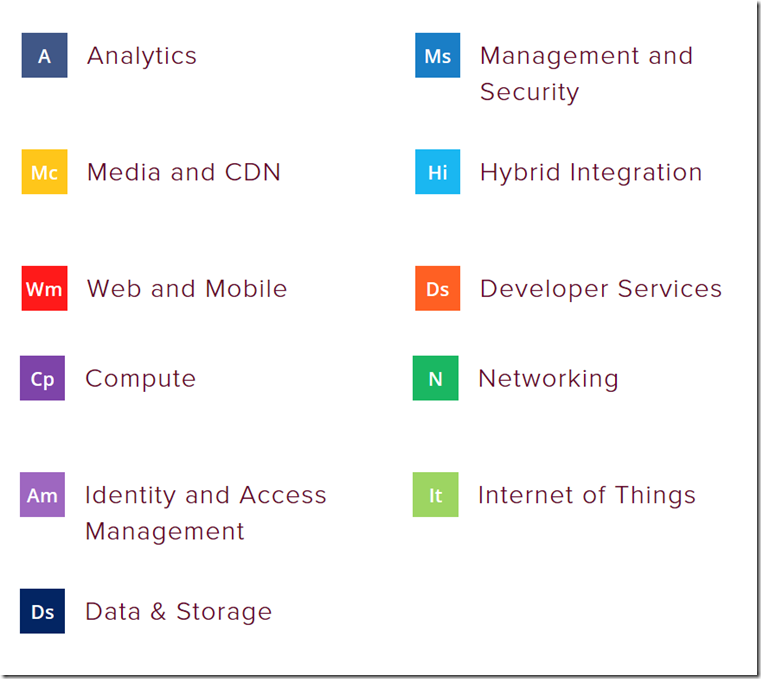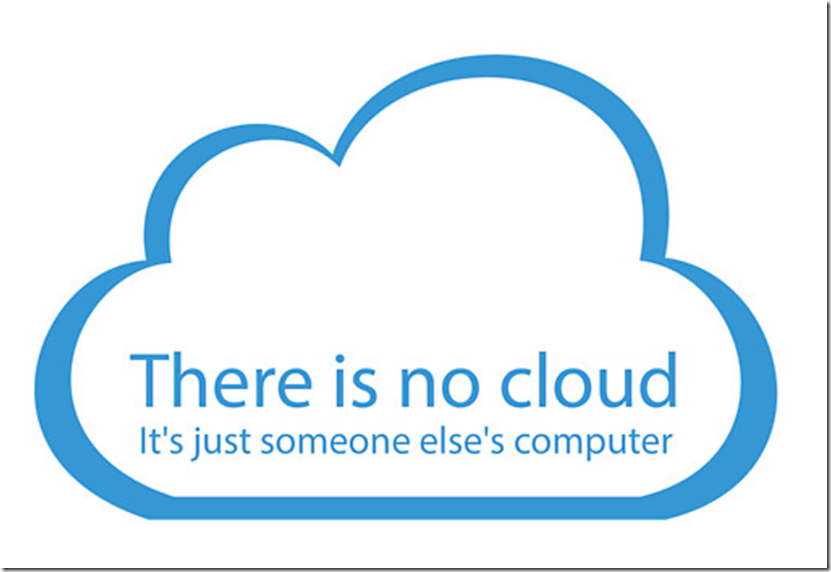Top 5 mistakes when people talk about Azure
A sad story
I recently got to talk to some people about Cloud technology and I tried to share my experience on this topic. I use to talk honestly to people, showing my point of view gained with my everyday work and not based on my role in Microsoft.
In the past I used to work with a lot of technologies, and I’m still a big fan of Open Source (that’s one of the reason why I love software) and this seems to be an hot topic in Microsoft too since we are in the TOP 10 contributors on GitHub.
Both for my work and for my passion for technology, I always try to be active on social communities, blogs, conferences and hackathon, and in the last year I faced with a very sad story about Microsoft Azure and tons of urban myths related to it.
The problem
I’ve learned that when someone talks about technology there are two crucial factors of influence:
- the good or bad experiences he/she had with it
- his/her personal thoughs about the owner of the technology
Microsoft has been one of the leading tech company in the last 40 years, and one of most known product is for sure Windows… the so much hated (and sometime also loved) Operating System of the Redmond’s company.
I guess that a lot of people have experienced issues with Windows and I’m pretty sure that at least the 50% of them have seen a BSOD 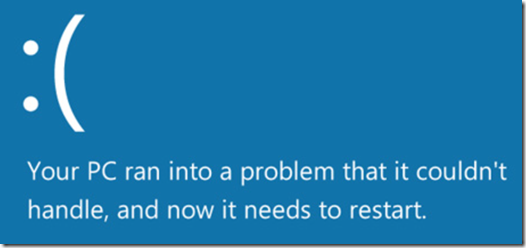
The problem is that you cannot jump to conclusion that all Microsoft’s products are bad and, primarily, you should not have a negative opinion of a Product/Service if you haven’t tried and stressed it for real. So the first trouble I struggle with in my job is to reset people’s bias about Azure and let them explore all the services and products offered by this platform, which has been recognized as one of the best Cloud solution on the market; after that I am ready to hear a real feedback.
The top 5 mistakes
The simplest way for me to make people think over Microsoft Azure is to explain why some thoughts are totally wrong, showing them how many benefits they can reach using it.
1. I need a powerful Cloud platform for my complex infrastructure, I'm not developing a simple website!
This is for sure one of the worst thing I’ve ever heard from people. Azure is a complete cloud platform which offers a competitive and even more rich IaaSoffering. 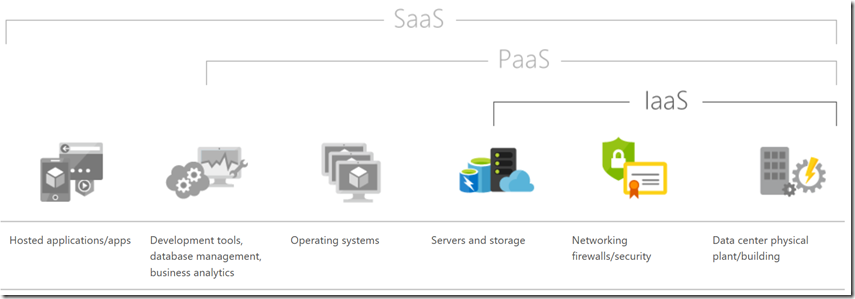
So if you are talking with someone who says this, he/she has probably never used, or explored in deep, Microsoft Azure! So just ignore this assertion and try to understand how you could use it to build even more a simple website.
2. Sorry but for my business I need to use Linux OS and Open Source software, that’s why I’m forced to choose <other-name> provider instead of Microsoft
Nobody never said that you have product or technology lock-in when adopting Azure as Cloud provider, rather you can choose from a full range of Linux distributions like Red Hat, Ubuntu, CentOS, SUSE, and community-driven solutions like Chef, Puppet, and Docker. There are no constraints for your DEV team (a lot of PaaS products for example propose Node.js as development environment) and there’s a full compatibility with 3rd party components from Oracle, IBM, and SAP.
So if you do not choose Azure for your concerns about its Microsoft’s constraints, probably you don’t know (yet) the Open Source opportunities that Azure offers.
3. Azure has less services than <other-name> Cloud provider
In the Cloud competition, Azure has to fight harder to fill the gap with other competitors on IaaS battlefield, but what I’ve learned in the past two years is that Microsoft Azure has the most complete, diversified and flexible PaaS offering on the market. To give you an idea of the number of available services here’s a nice “Periodic Table” picture by Concurrency, Inc: 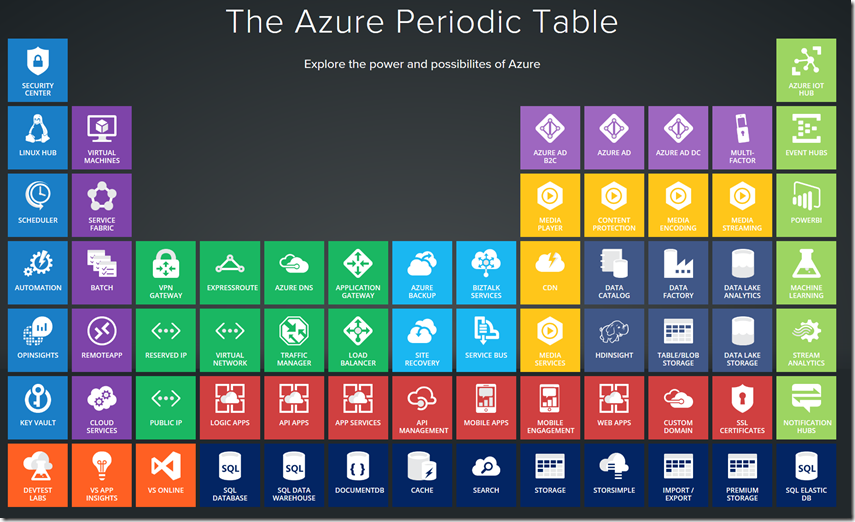
Where each color represents an area of interest of the following list:
4. Microsoft pricing model is too complicated
I have to admit it, if you are a tech-guy and not a commercial, it’s not easy to understand all the pricing and financial aspect of Cloud, but there are 4 important things you should know about Azure Pricing Model:
- No upfront costs
- No termination fees
- Pay only for what you use
- Per minute billing
Said that, the best way to understand more about pricing and to estimate how much your infrastructure would cost, is to play with these two awesome tools:
5. I read on a <social-network-name> that Azure has less geographic replication and not so much datacenters for its cloud services. I prefer to choose <other-cloud-provider> because they are better distributed
I heard this from the CEO of a startup during an Hackathon few months ago, and I was very surprised about it because in my mind startups have (or should have) always an up-to-date knowhow and they should not have bias about providers. My honest opinion is this: as a startup you should work with everything available on the market, try all the services and explore more and more, since this will help your company to differentiate your business and to be open to all technologies.
Said that, the datacenter global distribution of Azure is public and available and despite of the “heard from a friend of mine” assertion, Azure is available in 34 regions around the world, with plans announced for 6 additional regions. This means that Microsoft guarantee an high level Privacy and a well defined strategy for Availability and Disaster Recovery for customers.
Conclusion
As a tech lover and professional worker I’ve learned that you must set your mood to “continuous learning” state, especially when talking about innovative and growing things like Cloud. I never put my personal opinion ahead facts, and if my point of view is different from a friend/colleague/partner/customer that is a good reason for me to further investigate and learn new things.
When I talk with a friend/colleague/partner/customer I tell them to do not look at me as the Microsoft employee who has to sell his products but rather then a passionate guy who always tries to do the best on his work and is always open to study and learn more, which is basically what everyone should do.
